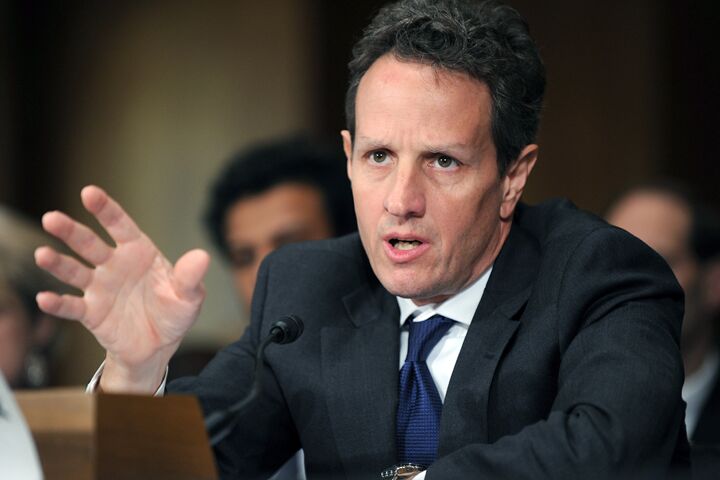
U.S. Will “Never” Lose Its AAA Credit Rating?
Great news! U.S. Treasury Secretary Timothy Geithner says America is in no danger of losing its aaa credit rating even though the country is still losing tens of thousands of jobs per month and the government is projected to run the biggest budget deficit in the history of the world.
What a relief.
America will “absolutely not” have its credit rating slashed, said Geithner. “That will never happen to this country” (emphasis mine throughout).
We are in “the process of healing,” he said, and investors around the world have a “basic confidence” in the United States.
Geithner’s comments come despite the fact that Moody’s Investors Service Inc. warned last week that U.S. government bond ratings will come under pressure in the future unless America’s budget deficits are reduced.
But the credit reports issued by Moody’s and the other agencies carry far less weight today than they did in the pre-economic-crisis days of 2008—especially when it comes to rating powerful business interests and governments. The ratings agencies completely missed (lacked the courage to report on) the looming banking meltdown that eventually leveled Wall Street. They also were far too easily convinced to assign triple-A ratings to $200 billion worth of risky subprime mortgage packages—even though they knew the mortgages carried extreme risk.
Remember the Enron scandal (2001) and how Enron stock fell from almost $90 per share to around zero? As economist Mike Shedlock notes, the credit rating agencies missed that one too—even though Enron became the biggest bankruptcy in U.S. history to that time. Moody’s didn’t even cut Enron from investment grade to junk status until a measly three weeks before Enron was delisted from the New York Stock Exchange.
So maybe Geithner is right. America may never lose its aaa rating—until the fact that U.S. treasuries are worth less than Enron stock and Federal Reserve notes have more zeros than a line of binary code, forces the rating agencies to issue a downgrade.
Geithner may wish he never said “never.” He could soon belong to a very embarrassing club that includes economist Irving Fisher, who just days before the 1929 crash predicted “Stock prices have reached what looks like a permanently high plateau,” and Ben Bernanke, who famously said that there was no housing bubble and then later claimed that “the subprime debt problem will be contained.“
More ominously for America, Mr. Geithner’s “all is well” comments sound a bit too Bear Stearnsish. Just days before this 86-year-old investment bank was shattered, its ceo, Alan Schwartz, reassured investors that the investment bank had a $17 billion cash cushion, that “our balance sheet has not weakened at all,” and that “we don’t see any pressure on our liquidity.”
Many investors believed Schwartz; after all, Bear Stearns was a bank acclaimed for surviving the Great Depression. Then the weekend arrived and on the following Monday the bank ceased to exist—shattered in just a few hours.
Where there is smoke there is fire. Anybody smell anything stinky?
